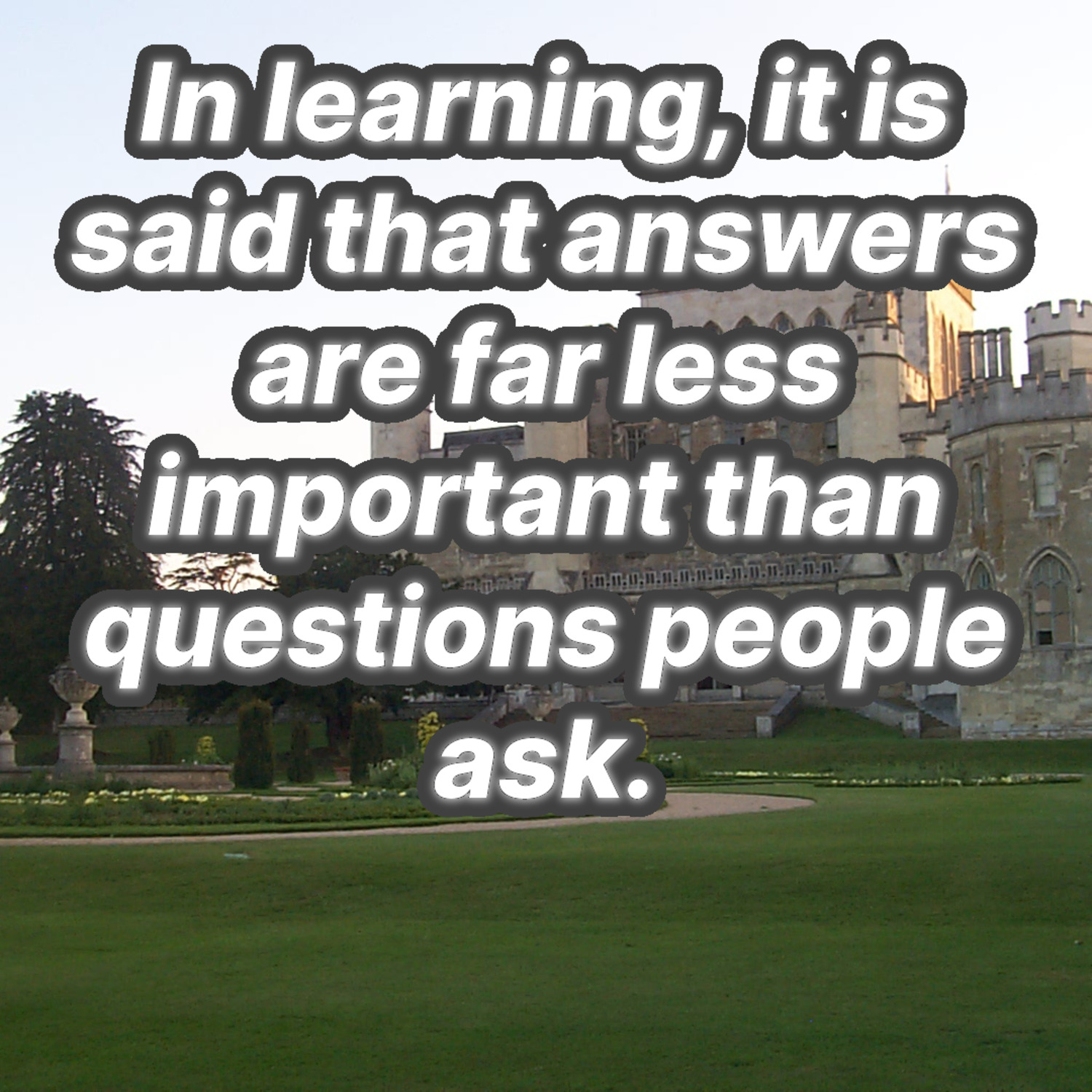The Question Master

Finally, become a question master. Information and comprehension will not present itself to you; most often, you will have to take it into your own hands. Questions will take a flat piece of information and turn it into a living, three-dimensional piece of knowledge that interacts with the world at large. That is the reality of any fact or piece of information; it has a story that we are usually overlooking. To ask a question is to see a subject, identify what you don't know, and also be open to the fact that your entire understanding could be wrong. Meaningful learning only occurs when you understand what surrounds information, such as the process and context. Questions can take the form of Socratic questions, which are a set of six questions that force a closer look at assumptions and underlying beliefs. Questions can also take cues from Bloom's Taxonomy, which help you analyze and evaluate information. Hear it here - https://bit.ly/selflearningblueprinthollins Show notes and/or episode transcripts are available at https://bit.ly/self-growth-home Peter Hollins is a bestselling author, human psychology researcher, and a dedicated student of the human condition. Visit https://bit.ly/peterhollins to pick up your FREE human nature cheat sheet: 7 surprising psychology studies that will change the way you think. For narration information visit Russell Newton at https://bit.ly/VoW-home For production information visit Newton Media Group LLC at https://bit.ly/newtonmg #BenjaminBloom #Bloom #SocraticMethod #Taxonomy #TheQuestionMaster #SelfLearningBlueprint #RussellNewton #NewtonMG #PeterHollins #ArtandScienceofSelf-Growth Benjamin Bloom,Bloom,Socratic Method,Taxonomy,The Question Master ,Self Learning Blueprint,Russell Newton,NewtonMG,Peter Hollins,Art and Science of Self-Growth